Rising from Despair to Hope
In the shadows of our modern world lies a landscape marred by despair. The air is thick with the struggles of mental and physical health crises, silently eroding the well-being of countless individuals. This despair is not selective; it seeps into the lives of the middle class, once thought to be immune to such pervasive hardship.
Families who once lived comfortably now find themselves unable to meet the demands of escalating bills and the unrelenting cost of living. Concurrently, a void in visionary leadership exacerbates this climate of distress. Political figures, who should be the architects of hope and progress, appear increasingly disconnected from the realities of those they represent. This disconnect has fostered an environment where despair is not just a passing cloud but a persistent storm over the lives of many.
It's imperative that we confront these multifaceted challenges head-on. For too long, society has draped a veil over these issues, hoping they would dissolve into the background. But the fabric of this veil is threadbare, and the problems it conceals are too significant to ignore. The collective pain of our communities calls for acknowledgment and action, not silence and neglect. It's time to lift this veil, to face the reality of our situation, and to work towards a future where despair gives way to hope.
Metacollaboration represents a paradigm shift in how we approach societal challenges. It transcends traditional collaboration by weaving together diverse threads of thought, expertise, and perspective into a cohesive tapestry of collective action. This approach is transformative, not merely because it encourages cooperation, but because it fundamentally changes the way we view our roles within society.
Metacollaboration acknowledges that the solutions to our most daunting problems lie not in siloed efforts, but in the synergistic potential of united minds and hearts. It's about harnessing our collective intelligence, creativity, and spirit to forge pathways that lead us out of the quagmire of current issues into a future of shared prosperity and well-being.
Building bridges
Metacollaboration emphasizes the importance of building bridges across diverse sectors of society, highlighting the necessity of creating alliances that span different industries, disciplines, and cultures. These alliances are practical partnerships that leverage the strengths of each sector to address complex challenges. By connecting entities, we establish a network of collaboration that is robust and dynamic. This network is crucial in a world where no single entity, regardless of its power, can independently tackle the monumental tasks we face.
At the core of metacollaboration is the principle of friendship and unity. This isn't just casual friendship, but a deep-seated bond that recognizes our interconnectedness and mutual dependency. In today's world, increasingly fragmented by politics, ideologies, and socio-economic disparities, fostering such friendship becomes a radical act. It holds the power to bridge divides, soften hardened positions, and illuminate common ground.
When global collaboration is underpinned by this sense of friendship, it transcends traditional power dynamics, fostering a sense of unity that is both empowering and inclusive. This unity lays the foundation for a world where decisions are made with the well-being of the many in mind, not just the few. It envisions a world where the collective good is the paramount consideration, ensuring that every decision contributes to the betterment of all. This eco-centric approach challenges us to think not just about what is good for us, but what is good for all – a necessary perspective shift in a world facing global ecological and social crises. This approach is not just beneficial but essential in our interconnected world, where collaborative efforts are key to addressing the multifaceted challenges of our time.
In the journey towards effective metacollaboration, personal responsibility and empowerment play pivotal roles. Central to this is overcoming inner conflicts – the unresolved issues within ourselves that can hinder our ability to collaborate effectively. These conflicts may stem from past experiences, ingrained beliefs, or personal insecurities. Resolving these issues is crucial for full and effective participation in metacollaborative efforts. When individuals are at peace with themselves, they can contribute more constructively, bringing a sense of clarity and purpose to collective endeavors.
To prepare for active participation in metacollaboration, individuals can take several concrete steps:
- Self-Reflection: Engage in regular self-reflection to understand personal motivations, fears, and biases. This understanding is crucial for personal growth and effective collaboration.
- Mindfulness: Practice mindfulness to stay grounded in the present moment. This practice enhances focus and reduces stress, enabling individuals to contribute their best selves to collaborative efforts.
- Nurturing Relationships: Foster and maintain healthy relationships. Strong interpersonal connections provide emotional support and broaden perspectives, both of which are essential for successful collaboration.
- Seeking Joy and Embracing Challenges: Engage, wherever you can, in activities that bring joy and laughter, and view challenges as opportunities for growth. A positive outlook and a growth mindset are invaluable in collaborative settings.
- Cultivating Empathy and Creativity: Practice empathy to understand and connect with others, and let creativity inspire innovative solutions in collaborative projects.
The challenges we face today are too vast and complex for any individual or single entity to tackle alone. There's an urgent need for collective will and action. We must unite in our efforts to address global challenges, leveraging the diverse strengths and insights that each person brings to the table. This collective will is not just about pooling resources; it's about fostering a shared vision and commitment to create a better world for current and future generations.
I extend an open invitation to you, the reader, to join the Global Collaboration Institute and contribute to the metacollaborative process. Your unique perspectives, skills, and experiences are invaluable assets in this collective journey. By participating, you become part of a global movement that seeks to reshape the way we address and solve the critical issues of our time.
As we embark on this path of metacollaboration, it's important to acknowledge the resistance this concept may face. Change, especially of this magnitude, is often met with skepticism and opposition. However, the promise and potential of metacollaboration to bring about meaningful, transformative change is immense. Despite the challenges, there is reason for optimism. As more individuals and organizations recognize the value of this approach, we will see a gradual but undeniable shift toward a more collaborative, interconnected, and harmonious world.
When you subscribe to the blog, we will send you an e-mail when there are new updates on the site so you wouldn't miss them.
By accepting you will be accessing a service provided by a third-party external to https://global-collaboration.eu/


Comments